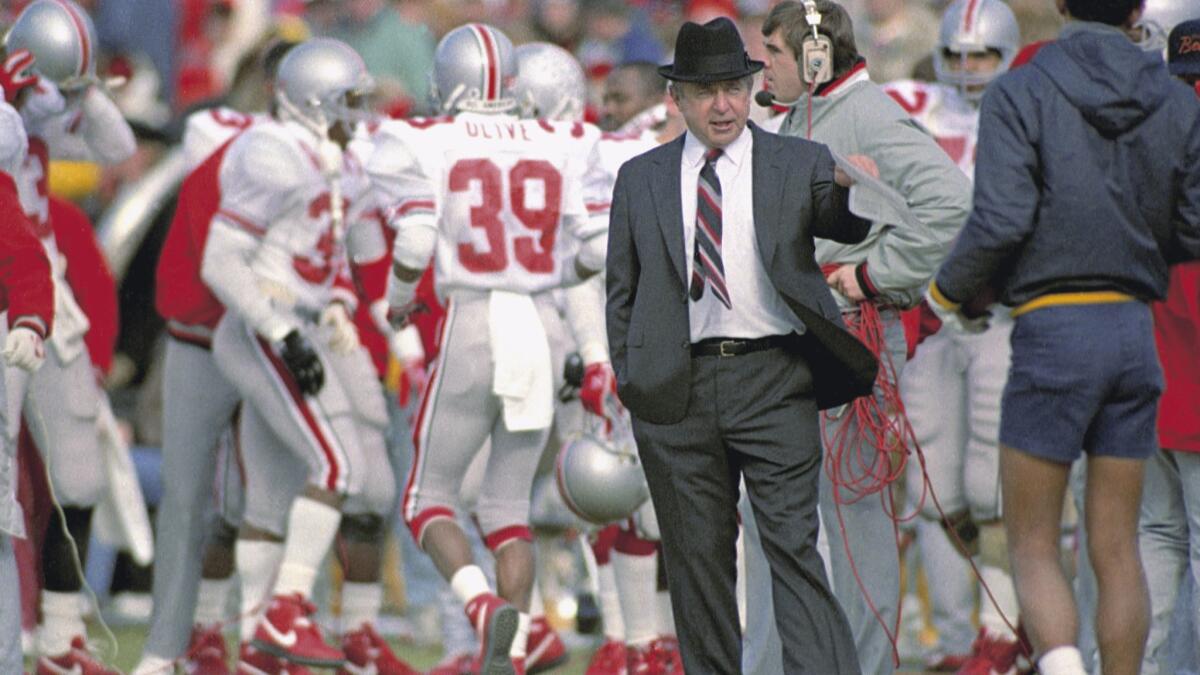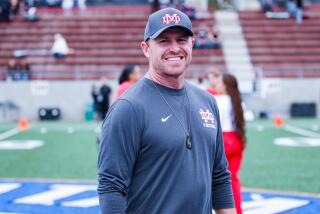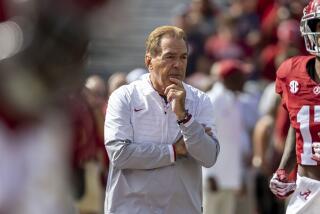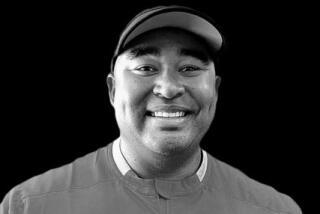Former Ohio State football coach Earle Bruce dies at 87

Earle Bruce stepped into his dream job, football coach at Ohio State, under most challenging circumstances, replacing the program’s revered longtime leader after a fall from grace.
Bruce embraced the task of following Woody Hayes and went on to have his own Hall of Fame career. He never did quite match Hayes’ record or status at Ohio State, but Bruce earned a special place of his own in Buckeyes football history as an adored patriarch and sage and the mentor to the program’s current coaching star.
Bruce died Friday in Columbus at 87, according to a statement released by his daughters through Ohio State. He had been suffering from Alzheimer’s disease.
He had a record of 81-26-1 at Ohio State from 1979 to 1987. He was inducted into the College Football Hall of Fame in 2003.
Bruce was hired after the revered Hayes was fired for punching a Clemson player in the 1978 Gator Bowl. Even after being fired by Ohio State and moving on to other jobs, Bruce never lost his passion for Ohio State football.
“He was just so genuine,” said former Ohio State All-American Chris Spielman, who played for Bruce from 1984 to 1987. “I think the one thing that stood out to me, and I heard other people describe him this way, there was nothing phony about him. What you saw was what it was. I loved him smiling when he told football stories.”
Current Ohio State coach Urban Meyer began his coaching career as a graduate assistant under Bruce in 1986, and later worked for him at Colorado State.
“I’ve made it clear many times that, other than my father, Coach Bruce was the most influential man in my life,” Meyer said in a statement. “Every significant decision I’ve made growing up in this profession was with him involved in it. His wife and he were the role models for Shelley and me. They did everything with class. He was not afraid to show how much he loved his family and cared for his family.”
Born in Pittsburgh and raised in Cumberland, Md., Bruce came to Ohio State in the fall of 1949 to play football. A knee injury ended his playing days and got him to think about coaching.
After a decade as a high school head coach, Bruce joined Hayes as an assistant at Ohio State in 1966. After six years, Bruce became head coach at the University of Tampa. After a stint at Iowa State, he was hired in January 1979 to replace Hayes, his mentor and friend. He went at the job with characteristic energy and organization, despite some criticism from fans who constantly compared him to the beloved Hayes, the Buckeyes’ coach for 28 seasons.
“You don’t want to lose in Columbus, Ohio,” Bruce once told the Associated Press. “A football loss? That’s terrible. You want to win all your home games. You’re only as good as your last game here.”
After winning or sharing four Big Ten titles, he was fired in 1987 after falling into disfavor with Ohio State President Ed Jennings.
Spielman said news of Bruce’s death brought back memories of the Ohio State band showing up at Bruce’s home on the day he was fired and playing the alma mater in a show of support.
“How much he loved that, appreciated that, I think shows you where Coach Bruce’s heart was,” Spielman said.
Bruce was preceded in death by his wife, Jean. Survivors include four daughters, nine grandchildren — including Ohio State wide receivers coach Zach Smith — and three great-grandchildren.
UPDATES:
12:35 p.m.: This article has been updated with reaction and details throughout.
This article first published at 7:55 a.m.
More to Read
Get our high school sports newsletter
Prep Rally is devoted to the SoCal high school sports experience, bringing you scores, stories and a behind-the-scenes look at what makes prep sports so popular.
You may occasionally receive promotional content from the Los Angeles Times.






